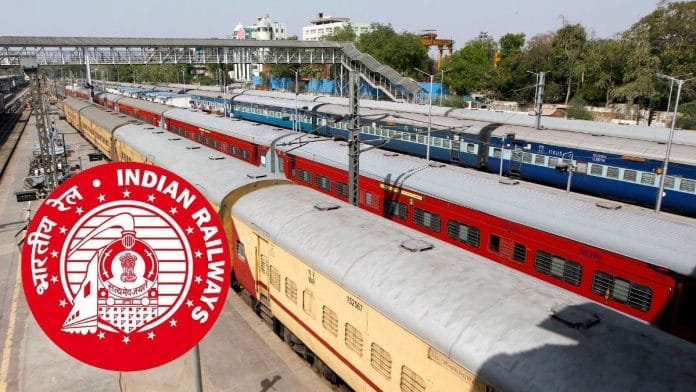New Delhi: A high-level policy change by the Railway Board regarding demurrage and wharfage charges in June has created a flutter within the Railways and among large business conglomerates, who say the move harms business interests.
New guidelines issued on 18 June transferred the power to waive demurrage and wharfage charges from commercial officers at the divisional level to the additional divisional railway manager, who is neither a field-level officer, nor necessarily belongs to the commercial department.
Business houses and different railway zones have sent strongly-worded communications to the Railway Board asking for a reversal of the policy, it is reliably learnt.
Demurrage charges refer to the penalties imposed on parties for not loading or unloading railway wagons within the prescribed free time allowed by the Railways, thereby delaying the train. Wharfage charges, on the other hand, refer to the penalties imposed for not clearing goods from the railway premises after unloading.
The power to waive these penalties is crucial for the Railways to attract freight and logistics business, from which it earns over 70 percent of its revenue. It has, therefore, hitherto rested squarely with the commercial department of the Railways.
“It is like giving the power to file FIRs to the SP (Superintendent of Police) instead of the SHO (Station House Officer),” explained a senior railway officer on condition of anonymity.
“The move is extremely anti-business because the powers for the waiver, which is such an important tool in the hands of the Railways to attract more business, have been taken away from the people who interact with business houses on a routine basis,” the officer added.
In response to queries sent by ThePrint on the backlash against the move, Dilip Kumar, Executive Director (Information and Publicity), Railway Board, said, the latest circular has tried to make the process of waiver of demurrage and wharfage more objective and transparent by defining more clearly the circumstances under which a waiver can be considered.
Secondly, the decision for a waiver will now be taken by examination at two levels, first by the commercial department and second by the ADRM and DRM (Divisional Railway Manager), Kumar said.
“By reducing discretion in the decision making, the process will become more objective and more transparent,” he said. “Ultimately Railway customers will feel that the laid down process is followed for one and all.”
‘Anti-business’
The move has created a stir with large conglomerates, some seen as having close business relations with the government, officially lodging their concerns on the matter.
Highly placed sources told ThePrint that the move is being seen as a setback to the government’s ease of doing business agenda, especially as the Indian Railways is trying to position itself as a modern logistics alternative in a competitive market dominated by roads.
Business houses believe that the move will introduce more red tape and reduce the dynamism and flexibility required for business.
“For us, as a customer of the railways, time is the most important thing. People we are interacting with need to be on the field, and act dynamically as a situation evolves,” a senior manager at one of the business houses that has officially communicated its reservations to the government, told ThePrint.
“If they are going to introduce this red-tapism, we will take our goods by road.”
Another senior member of one of the country’s largest conglomerates echoed the sentiment. “Divisional commercial officers are the ones who engage with us customers, and they are the ones who have a nuanced understanding of how logistics operate at the field level—all the untoward situations we encounter, etc.,” he said.
“They are the ones who form business relations, and their waivers to customers when the customer is not at fault are a crucial instrument in getting the railways more business,” he added. “Taking that away from field officers and investing that power with a centralised authority is very worrying.”
Reservations within govt
It is not just the business houses that have registered their concern over the policy.
Officials from different railway zones told ThePrint that they, too, have shot off letters to the Railway Board, asking it to reconsider the policy change.
“The power of waivers to commercial officers at the divisional level has been key in allowing real-time marketing and customer service,” an official at one of the zones told ThePrint.
“This is an entirely business tool, and therefore, to take away its powers from the commercial department is suicidal…The Commercial Department’s core mandate is freight marketing. How can that be taken away from them?” the official added.
Sources in the government also said the policy change is the latest case of inter-departmental rivalries within the Railways, causing a blow to the national carrier.
“If you dig deep, it is basically an attack on the non-technical officers by the technical officers,” an officer said.
The Railways have a history of deep inter-departmental rivalries. It was one of the reasons cited by the government to merge the eight railway services into one unified Indian Railway Management Service (IRMS) in 2020.
However, last year, the government made a U-turn on its decision, and again demerged the railway services.
However, the Member of Operations and Business Development in the Railway Board, is from the electrical department—earlier a cadre post traditionally held by officers of the traffic and commercial officers. After the 2019 merger, however, it was made an ex-cadre post.
This ia an updated version of the report with statement from the Executive Director (Information and Publicity), Railway Board.
(Edited by Sugita Katyal)
Also Read: Railway officers challenge ministry’s services demerger in CAT, call it arbitrary & unconstitutional






